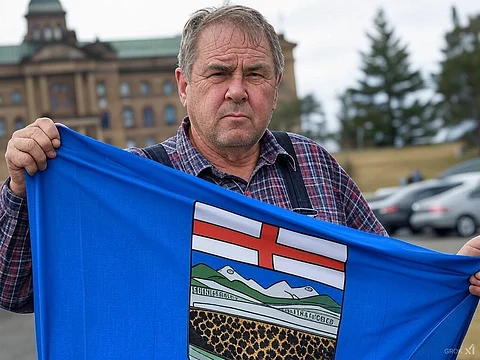

Alberta now harbours more separatist sentiment than Quebec, says a recent poll by Research Co. on unity and politics in Canada.
According to the study, 38% of people in Alberta believe the province is better off as its own country, compared to around 35% of Quebecers who feel the same way.
Albertans, rich in oil and gas, feel economically discriminated against by federal policies that are seen as detrimental to its primary industries. Policies related to climate change, pipelines, and resource management are often viewed as federal overreach or neglect, leading to alienation.
The Government of Canada announced Quebec will get $13.6 billion in transfer payments in 2025-2026 and the West will get zero.
Quebec received $14 billion in equalization payments in 2023-2024 — total transfers to Quebec rounded to $28.7 billion, which includes the Canada Health Transfer, Canada Social Transfer, and Equalization payments.
Over the years, Alberta has been one of the largest contributors to federal revenue due to its high-income residents and robust corporate tax base, largely connected to oil and gas.
Alberta does not receive equalization payments because its financial heft exceeds the national average.
The imbalance leads to a perception that Alberta is disproportionately funding other provinces — especially when considering the significant amounts like $240 billion over 11 years sent to Ottawa but not returned in equal measure to Alberta.
There's a long-standing sentiment of Western alienation where Albertans feel their province is not treated fairly within the Canadian federation. This includes dissatisfaction with equalization payments.
Political events like the re-election of the Liberal party without securing seats in Alberta or Saskatchewan have fueled feelings of being politically marginalized.
The perception is that Alberta's interests, especially concerning oil and gas, are not adequately represented or considered in federal politics.
There's a cultural divide where Albertans often feel their conservative, resource-based identity is at odds with the more liberal, urban-centric policies coming from Ottawa.
The introduction of the Alberta Sovereignty Within a United Canada Act by Premier Danielle Smith signifies a formal pushback against perceived federal intrusion. The act allows Alberta to challenge federal laws deemed harmful, further highlighting a separatist sentiment.
